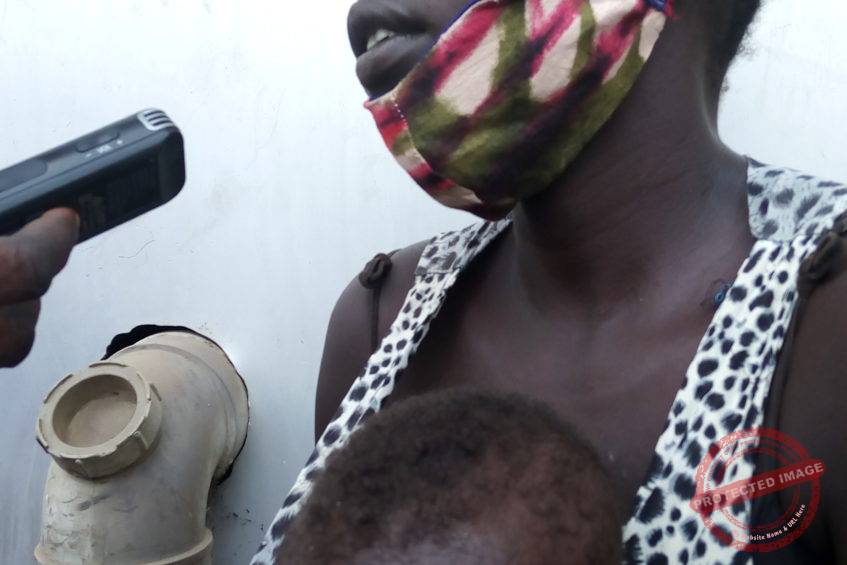
Maria Keji who lives in Hai-Malakal cemetery is among some of the women who force their children to beg for family survival - credit | Eye Radio | Jenifer James Ogawi
Following an eruption of conflict in 2013 and 2016, South Sudan has experienced economic meltdowns since it’s gained its independence in 2011.
The war has displaced thousands, forcing many children to go on the streets of Juba, and in other major cities in South Sudan.
Many orphanages have been established across the country, and most families are left with no choice but to send their children on the street to beg to fend for the family.
In the past few years, many children have been roaming on the streets of Juba begging.
Due to the economic crisis and Covid 19 pandemic in the country, some parents resort to sending their children to beg in the markets and along the road side to raise some money to feed their families.
Tombe Wani is one of a growing number of children who are pushed to the streets by parents as the families try to navigate covid19 pandemic that brought poverty and put daily needs out of reach for most low-income families.
Maria Keji is one of the mothers who normally send her child to beg in different parts of Juba. She is a widow and a mother of three children who stay in Hai Malakal cemetery.
In an exclusive interview with Communication for Development reporter, Jenifer James, Maria Keji said before the death of her husband, they never owned any properties and they stayed in a family house in Hai-Jalaba in Juba.
She added that the family of her late husband rejected her together with her three children, which forced her to leave the house and currently stay in Hai Malakal cemetery.
“I was washing dishes in one of the local restaurants before the Covid-19, but due to pandemic the restaurant was closed down.” Maria said.
“I normally send my first born Tombe Wani to go and beg in Konyo-Konyo and I normally beg in Hai-Malakia in Stanford international University.”
‘‘Sometimes, I go home with 1,500ssp, which later will be used for buying food stuff for the family, while Tombe usually brings 500ssp sometimes more than that,’’ She lamented.
Maria Keji doesn’t know how to read and write and this has made her not to know the rights of her children regarding the situation she has faced with the family of her late husband.
Instead of sending her children to school, Marie chose to send her children to beg in the market and on the streets because she needed to feed the family.
Meanwhile, Zubeda Ali, a businesswomen told this reporter that women should resort to doing business and stop sending their children to the streets to beg.
Zubeda calls on parents to start business rather than to encourage their children to beg in the streets of Juba which is against their rights.
“I started doing my business before the independence of South Sudan with the small restaurant which later collapsed.” She said.
“I am currently baking Mandasi, Waiwai and selling charcoal for the survival of my children and grandchildren since my daughter is not working.”
“The income that I normally make before Covid-19 era was two times more than what I am using for the business.”
“Increase of goods and services in the market is a challenge that every business person is going through.” She echoed.
According to the transitional constitution of South Sudan chapter one section 17 sub section (d) stated that every child is not to be subjected to exploitative practice or abuse, nor to be required to serve in the army or any work which will be hazardous or any harm to his/her well.
Editor Note: This article was written by Jenifer James Ogawi, one of the journalists trained by Eye Radio under UNICEF’s Communication for Development project. Eye Media thanks UNICEF for the support offered in order to have this successful basic journalism training on content production to promote integrated life-saving messages and prevention of undernutrition.
Support Eye Radio, the first independent radio broadcaster of news, information & entertainment in South Sudan.
Make a monthly or a one off contribution.
Copyright 2024. All rights reserved. Eye Radio is a product of Eye Media Limited.